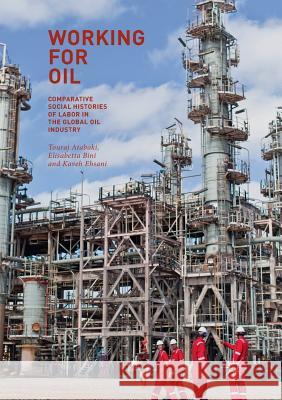Working for Oil: Comparative Social Histories of Labor in the Global Oil Industry » książka
topmenu
Working for Oil: Comparative Social Histories of Labor in the Global Oil Industry
ISBN-13: 9783319859149 / Angielski / Miękka / 2019 / 430 str.
Kategorie BISAC:
Wydawca:
Palgrave MacMillan
Język:
Angielski
ISBN-13:
9783319859149
Rok wydania:
2019
Wydanie:
Softcover Repri
Ilość stron:
430
Waga:
0.52 kg
Wymiary:
21.01 x 14.81 x 2.29
Oprawa:
Miękka
Wolumenów:
01
Dodatkowe informacje:
Wydanie ilustrowane











